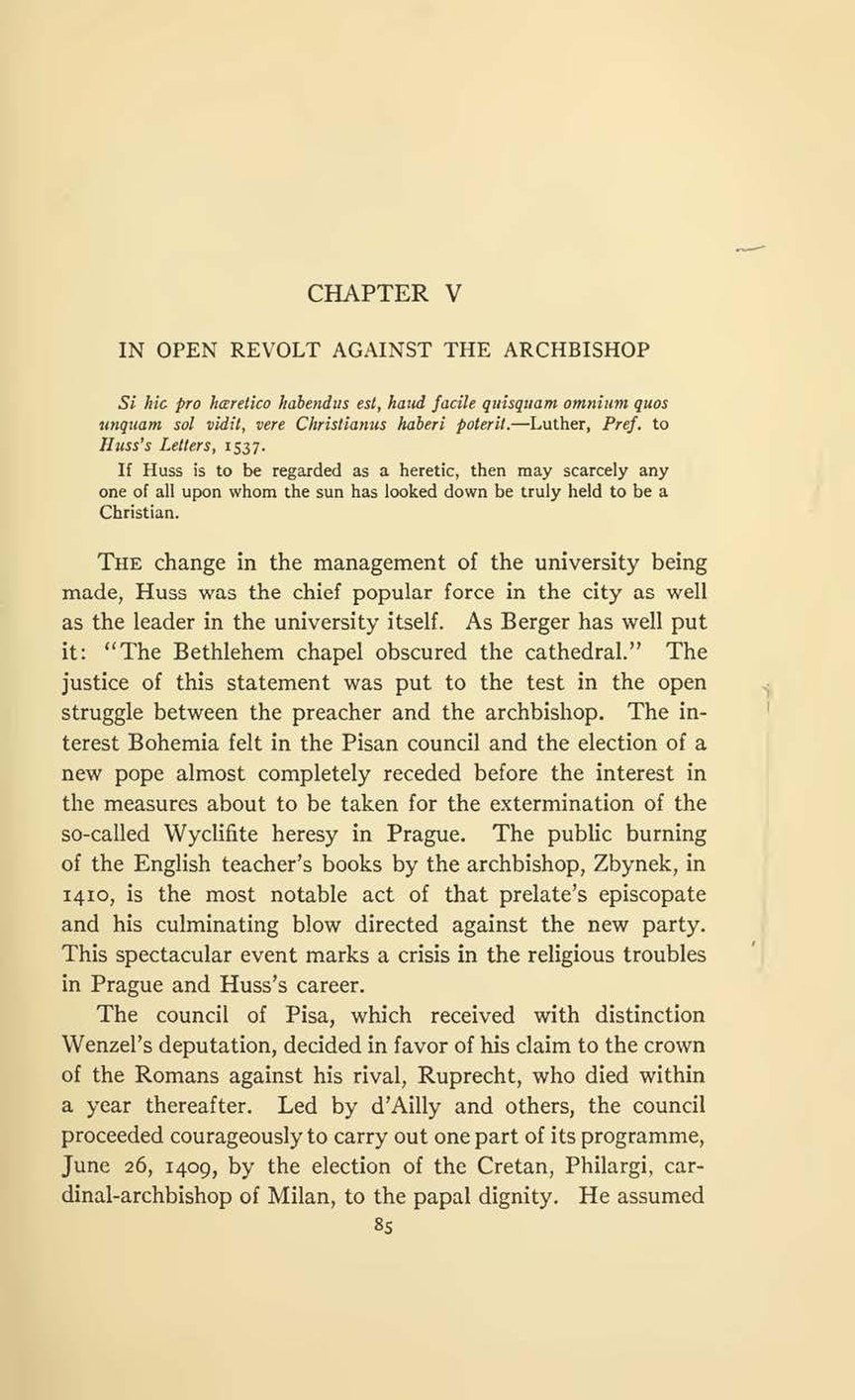CHAPTER V
IN OPEN REVOLT AGAINST THE ARCHBISHOP
Si hic pro hæretico habendus est, haud facile quisquam omnium quos unquam sol vidit, vere Christianus haberi poterit.—Luther, Pref. to Huss’s Letters, 1537.
If Huss is to be regarded as a heretic, then may scarcely any one of all upon whom the sun has looked down be truly held to be a Christian.
The change in the management of the university being made, Huss was the chief popular force in the city as well as the leader in the university itself. As Berger has well put it: “The Bethlehem chapel obscured the cathedral.” The justice of this statement was put to the test in the open struggle between the preacher and the archbishop. The interest Bohemia felt in the Pisan council and the election of a new pope almost completely receded before the interest in the measures about to be taken for the extermination of the so-called Wyclifite heresy in Prague. The public burning of the English teacher’s books by the archbishop, Zbynek, in 1410, is the most notable act of that prelate’s episcopate and his culminating blow directed against the new party. This spectacular event marks a crisis in the religious troubles in Prague and Huss’s career.
The council of Pisa, which received with distinction Wenzel’s deputation, decided in favor of his claim to the crown of the Romans against his rival, Ruprecht, who died within a year thereafter. Led by d’Ailly and others, the council proceeded courageously to carry out one part of its programme, June 26, 1409, by the election of the Cretan, Philargi, cardinal-archbishop of Milan, to the papal dignity. He assumed
85
